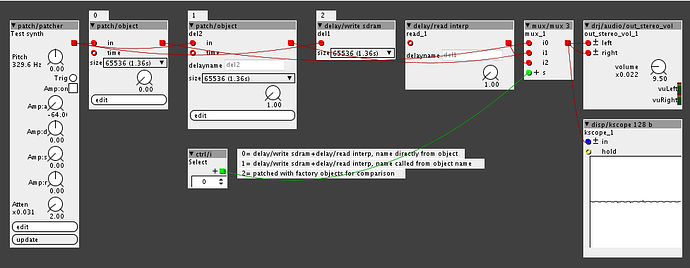Hello 
I have been experimenting with making a delay object, where I would like to combine the delay/read interp with the delay/write sdram. I managed to do it in 2 different ways, the patch goes live and it works... BUT........ The sound that comes out of the object sounds really bad. Sounds a bit the same way as if you feed an interpeted signal into a non interpeted table. Doesnt sound nice. So I am thinking it might be related to the interpetation going on. One object is interpeted(delay/read interp) and the other(delay/write sdram) is not interpeted..... and when combined it doesnt work well.
Would anyone know a solution for this issue? How to make the interpetation internally in the object?
Thanks!
Here is a patch with a couple of test versions:
Custom Delay FOR COMMUNITY 1.axp (13.1 KB)
@SirSickSik
In your repeater object I see you use the same approach with the delay/read X and the delay/write in the same object. I am wondering if you are using the non interp or the interp version on the delay? I cant figure that out. Thanks

